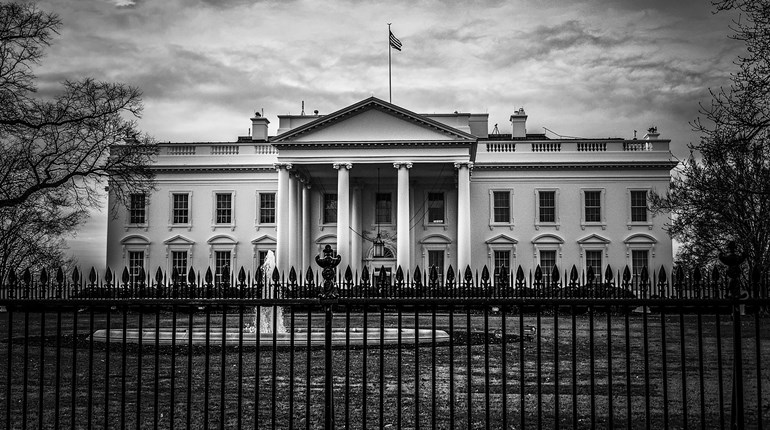
Elections have consequences. Less than two months into the Biden administration, the U.S. House of Representatives took up two far-reaching gun-control bills. Neither would reduce crime, but that is not the point. The goal instead is to turn the constitutionally guaranteed right to keep and bear arms into a privilege administered—or not—at the government’s pleasure.
Both bills are built on lies and designed to lull the public into thinking they’re just moderate “reforms” to close “loopholes” in the existing background check system for retail firearm sales. The truth is they are paradigm-shifting attacks designed to set the stage for ever-increasing crackdowns on lawful gun ownership.
Let’s start with H.R. 8, the so-called “Bipartisan Background Checks Act of 2021.” Supporters of the measure claim it would simply require gun sales between private individuals to go through the same “instant” background check that currently applies to retail sales by federal firearm licensees (FFLs).
Such a bill would present problems from a Second Amendment standpoint, but that is not all H.R. 8 would do. The bill actually seeks to interpose government fees and paperwork into every situation in which a firearm changes hands between private parties, including temporary loans for lawful purposes, even between family members and close friends.
The general rule of H.R. 8 is that handing a gun to another person without first hiring an FFL to process the transfer with the same paperwork and background check required for a retail sale would subject a person to up to a year in federal prison and/or a $100,000 fine. This applies even if the recipient of the firearm is legally eligible to receive it and even if the transferor wasn’t aware of the law’s requirements.
The bill’s supporters argue it contains exemptions, but they are exceedingly limited, very confusing and shift the burden to the accused to justify their actions, rather than the government to prove actual wrongdoing. Making gun owners justify their harmless, and often beneficial, conduct with firearms flips the basic premise of our constitutional right on its head. The government is supposed to justify any restrictions on our rights, not the other way around.
And, it is the exemptions that illustrate how sweeping the general rule actually is.
If you wanted to hand a gun to a member of your own household, you had better check the list of exempted relationships. Even some family members aren’t on the list.
For example, aunts and uncles could loan or gift a firearm to a niece or nephew. But if one cousin lent a shotgun to another cousin, the shotgun’s owner would become a federal criminal.
Summaries of the bill in the media claim that temporary transfers for self-defense, hunting and target shooting are exempt. The truth, however, is more complicated.
For example, the self-defense exemption only applies when “necessary to prevent imminent death or great bodily harm” and can last “only as long as immediately necessary to prevent the … harm” (emphasis added).
These phrases are well-known to attorneys familiar with the law of self-defense. What they would mean is that you could not loan someone a firearm for self-defense until, essentially, a violent assault was actually underway, and only then until the immediate danger had passed.
So, if one roommate happened to see a burglar attack another roommate, the first roommate could hand a gun that she owned to the second roommate while the incident was underway. But assuming the second roommate used the gun to scare away the intruder, the first would have to take it back the moment the burglar fled; otherwise, she would be outside the window of “necessity” that made the transfer legal.
On the other hand, what if a neighbor’s abusive ex-boyfriend was getting out of jail and had sworn to settle scores with his ex? Could you directly lend her a handgun as a precautionary measure?
The answer is no. Because the threat of violence would only be speculative and theoretical, the situation would lack the “imminence” necessary for the transfer to be exempt.
The target-shooting exemption likewise would apply only if the transfer occurs at the range itself. So, if a friend wanted to lend another friend a firearm to practice with, the friend borrowing the gun could not transport it separately in his own car or take it home to clean it.
These details show that the bill’s exemptions are largely illusory and disregard common situations. They are just as likely to create traps for innocent conduct as they are to shield it from prosecution.
Consider other situations the bill doesn’t accommodate at all. A person at risk of suicide could not give his firearms to a friend for safekeeping unless he paid to process the transfer of every gun through an FFL. And if the person’s mental health improved and he was able to safely retake possession of his guns, he’d have to go through a dealer transfer to get them back.
All this begs the question, what’s the real point of H.R. 8? For something touted as “commonsense” gun control, the bill certainly doesn’t make much sense.
The purpose definitely isn’t to fight crime. Studies of how incarcerated criminals obtained guns have repeatedly shown that they deliberately worked around the background check system (through theft, straw purchases, etc.), knowing they likely wouldn’t pass a background check.
And while mass killings are exploited to promote gun control, their perpetrators are not typical criminals. More often, they are people without a record who passed a background check to obtain their guns and who never expected to survive their attack, much less to get away with it. More background checks won’t stop them, either.
The real goal of “universal” background check legislation is to tie conscientious gun owners into so many legal knots that they avoid any situation, no matter how harmless, where someone else touches their firearms. That is, to cancel most lawful firearm transfers.
It’s also to document every transfer of a firearm on government-accessible paperwork to have the framework for a comprehensive gun-owner registry. While H.R. 8 does not authorize the creation of such a registry itself, that step could easily be taken in a subsequent bill, using the very records created under H.R. 8’s authority.
Far from “moderate reform,” both bills set the stage for ever-increasing crackdowns on lawful gun ownership.
And, as we’ve seen time and again, firearm registries inevitably lead to firearm confiscation. That’s why NRA has worked tirelessly for decades to prevent the federal government from compiling a registry of gun owners.
This brings us to the second bill, H.R. 1446, or “The Enhanced Background Checks Act of 2021.” The goal of this bill, according to its author, is to close what he calls the “Charleston Loophole.”
Following the 2015 attack at a church in Charleston, S.C., the media seized on the narrative that the perpetrator only got his firearm because of a supposed “loophole” in federal law that allows a licensed dealer to transfer a firearm three business days after an unresolved firearm background check began.
This is not a loophole, however, but an intentional safeguard. The point of the supposedly “instant” FFL background check is to screen out people who are statutorily prohibited from possessing guns.
Because gun ownership is a right, however, the government bears the burden of justifying any attempt to block a transfer by pointing to a disqualifying record in the system.
Yet some records require further research, which is why the government can delay a transfer for up to three business days. If the check is still unresolved, the dealer has the option (but is not required) to transfer the gun if there’s no reason to believe the applicant cannot legally have it. Otherwise, the government could block even legally eligible people from buying guns, simply by refusing to finish their background checks.
Supporters of H.R. 1446 claim that all it does is extend this default transfer window to 10 business days.
But under the bill, the three-day transfer option would no longer be automatic. The delay would presumptively be indefinite unless the would-be recipient, who already asked the government once to determine his or her eligibility, filed an appeal to ask the government—pretty please—to do so again.
This filing would then trigger a further delay of 10 business days. Only if the government failed to respond during this time would the dealer have the option to proceed. But the bill would completely flip the burden from the government to prove its case for non-transfer to the would-be recipient to repeatedly beg for what is his or hers by right.
In any case, the Charleston perpetrator was not actually prohibited from buying a gun, so the three-day default transfer should have been irrelevant. And the crime didn’t occur until two months after the purchase, giving the authorities plenty of time to resolve the background check and to seize the gun, if they could have shown he was ineligible. As terrible as the crime was, it simply does not justify the bill’s changes.
As I write this, the House—with its anti-gun majority—has just passed both of these terrible bills.
Their fate in the closely-divided Senate is less certain, but defeat is by no means assured.
That’s why all freedom-loving Americans must urge their senators to vote NO on H.R. 8 and H.R. 1446.
Freedom is not a “loophole,” and your RIGHT to arms must not be turned into a government-allocated privilege.


































